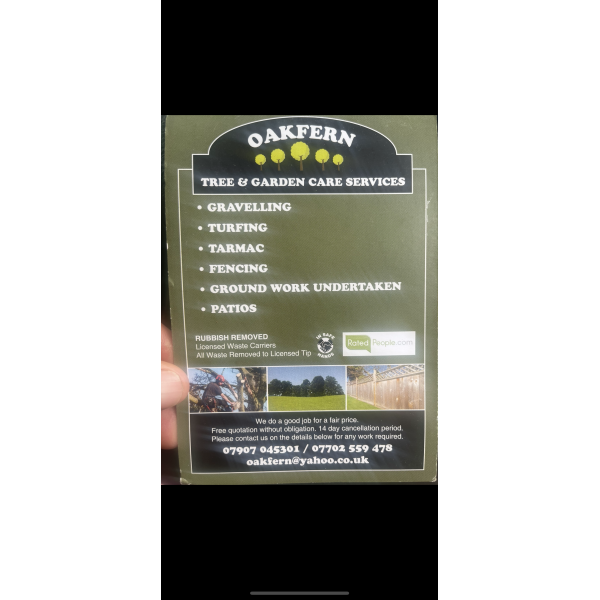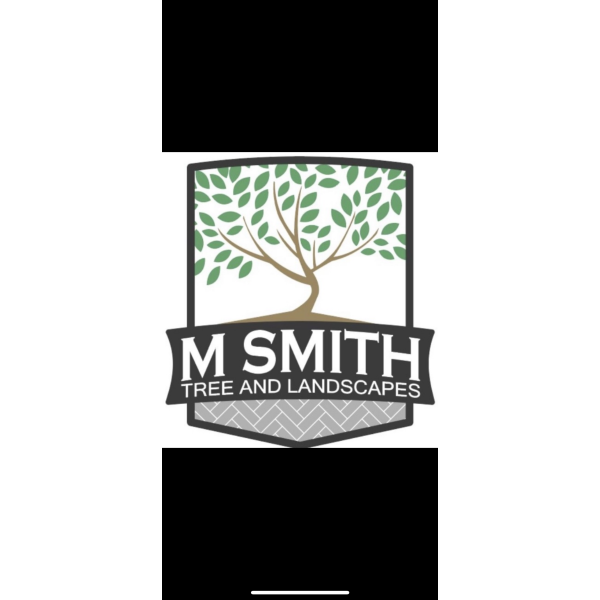Tree Surgeons in West Bromwich
Welcome to Premier Estates Home Improvements, your go-to experts in Ettingshall for all your building and landscaping needs. As a leading... read more »
Welcome to Oakfern, your go-to experts for Landscaping Contractors, Tree Surgeons, Driveway Contractors, Patio Contractors, and Block Pav... read more »
Nationwide Tree Care and Landscaping is your go-to expert for landscaping contractors and tree... read more »
Welcome to M Smith Trees And Landscaping, your trusted partner for exceptional landscaping services in Merry Hill and the West Midlands.... read more »
Welcome to Flowers Landscape Gardening Ltd, your go-t... read more »
Welcome to Lee’s Trees, your go-to tree surgeons in... read more »
Welcome to Golden Axe Tree Surgeons, your premier cho... read more »
Welcome t... read more »
Welcome to O.S Improvements, your trusted partner for... read more »
Welcome to Tree Surgeon Wolverhampton, your trusted p... read more »
Welcome to Johns Roofing & Gardening, your trusted pa... read more »
Tree And Landscaping: Premier Tree Surgeons i... read more »
Welcome to K And C Tree Worker, your trusted partner... read more »
Town Country Landscapes: Premier Tree Surgeon... read more »
Welcome to Oak Leaf Tree Services, your trusted partn... read more »
Welcome to Ideal Tree Services Ltd, your go-to tree s... read more »
Welcome to Harveys Tree Service, the premier choice f... read more »
Welcome to Wildwood Tree Care, your premier choice fo... read more »
TH Tree And Landscaping, nestled in... read more »
Welcome to Handyman Gardening, your trusted partner f... read more »
Search Tree Surgeons in places nearby
Understanding the Role of Tree Surgeons in West Bromwich
Tree surgeons, often referred to as arborists, play a crucial role in maintaining the health and safety of trees in urban and rural settings. In West Bromwich, these professionals are essential for preserving the town's natural beauty and ensuring public safety. But what exactly do tree surgeons do, and why are they so important?
The Importance of Tree Care in Urban Areas
In urban areas like West Bromwich, trees provide numerous benefits, including improving air quality, offering shade, and enhancing the aesthetic appeal of the environment. However, urban trees face unique challenges such as pollution, limited space, and human interference. Tree surgeons are vital in managing these challenges, ensuring that trees remain healthy and safe.
Environmental Benefits of Trees
- Air Quality Improvement: Trees absorb pollutants and produce oxygen, contributing to cleaner air.
- Temperature Regulation: By providing shade, trees help reduce urban heat, making cities more comfortable.
- Wildlife Habitat: Trees offer shelter and food for various wildlife species, promoting biodiversity.
Challenges Faced by Urban Trees
Urban trees often struggle with limited root space, soil compaction, and exposure to pollutants. Tree surgeons address these issues through careful planning and maintenance, ensuring trees thrive despite these challenges.
What Does a Tree Surgeon Do?
Tree surgeons in West Bromwich perform a variety of tasks to maintain tree health and safety. Their work involves both preventive care and emergency response to tree-related hazards.
Key Responsibilities
- Pruning and Trimming: Removing dead or overgrown branches to promote healthy growth and prevent hazards.
- Tree Removal: Safely cutting down trees that pose a risk to people or property.
- Planting and Transplanting: Selecting appropriate tree species for specific locations and ensuring successful establishment.
- Pest and Disease Management: Identifying and treating infestations or diseases that threaten tree health.
Tools and Techniques
Tree surgeons use a range of specialised tools, including chainsaws, climbing equipment, and wood chippers. They employ techniques such as crown thinning, deadwood removal, and cabling to maintain tree structure and health.
Qualifications and Training for Tree Surgeons
Becoming a tree surgeon requires a combination of formal education, practical training, and certification. In West Bromwich, aspiring arborists must meet specific qualifications to practice professionally.
Educational Pathways
Many tree surgeons start with a background in horticulture or forestry. Courses in arboriculture provide specialised knowledge in tree biology, soil science, and pest management.
Certification and Professional Development
Certifications from recognised bodies, such as the Arboricultural Association, demonstrate a tree surgeon's expertise and commitment to professional standards. Continuous professional development is essential to stay updated with the latest techniques and safety practices.
Safety Considerations in Tree Surgery
Tree surgery is inherently risky, involving work at heights and the use of dangerous equipment. Safety is paramount, and tree surgeons in West Bromwich adhere to strict safety protocols to protect themselves and the public.
Personal Protective Equipment (PPE)
- Helmets: Protect against falling debris and head injuries.
- Harnesses and Ropes: Ensure safety when working at heights.
- Gloves and Boots: Provide grip and protection from sharp tools and surfaces.
Risk Assessment and Management
Before commencing any work, tree surgeons conduct thorough risk assessments to identify potential hazards and implement control measures. This process includes evaluating tree stability, site conditions, and weather forecasts.
Choosing a Tree Surgeon in West Bromwich
When selecting a tree surgeon, it's important to consider their qualifications, experience, and reputation. Here are some tips to help you make an informed decision.
Checking Credentials
Ensure the tree surgeon holds relevant certifications and is a member of professional organisations. This indicates adherence to industry standards and a commitment to quality work.
Evaluating Experience and Expertise
Experience is crucial in tree surgery. Look for professionals with a proven track record in handling similar projects. Ask for references or testimonials from previous clients to gauge their reliability and expertise.
Obtaining Quotes and Comparing Services
Request quotes from multiple tree surgeons to compare prices and services. Be wary of unusually low prices, as they may indicate subpar work or lack of insurance coverage.
Common Tree Problems in West Bromwich
Trees in West Bromwich face various challenges, from pests and diseases to environmental stressors. Understanding these issues can help in their effective management.
Pests and Diseases
- Ash Dieback: A fungal disease affecting ash trees, leading to leaf loss and branch dieback.
- Oak Processionary Moth: A pest that defoliates oak trees and poses health risks to humans.
- Honey Fungus: A destructive fungus that attacks tree roots, causing decay and death.
Environmental Stressors
Urban trees often suffer from drought, soil compaction, and pollution. Tree surgeons implement strategies such as mulching, watering, and soil aeration to mitigate these stressors and promote tree health.
The Future of Tree Surgery in West Bromwich
The field of tree surgery is evolving, with advancements in technology and increased awareness of environmental sustainability. In West Bromwich, tree surgeons are adapting to these changes to provide better services and protect the town's green spaces.
Technological Innovations
New tools and equipment, such as drones and advanced climbing gear, are enhancing the efficiency and safety of tree surgery. These innovations allow for precise assessments and interventions, reducing the risk of damage to trees and property.
Sustainability Practices
Tree surgeons are increasingly adopting sustainable practices, such as recycling wood waste and promoting biodiversity. These efforts contribute to the conservation of natural resources and the reduction of environmental impact.
Frequently Asked Questions
What is the difference between a tree surgeon and an arborist?
While the terms are often used interchangeably, a tree surgeon typically focuses on the physical aspects of tree care, such as pruning and removal. An arborist may also provide broader advice on tree health and management.
How often should trees be pruned?
The frequency of pruning depends on the tree species, age, and condition. Generally, most trees benefit from pruning every 3-5 years to maintain their health and structure.
Can tree surgeons help with tree planting?
Yes, tree surgeons can assist with selecting suitable tree species, planting, and ensuring proper establishment. Their expertise ensures that trees are planted in optimal conditions for growth.
What should I do if I suspect a tree is diseased?
If you notice signs of disease, such as discoloured leaves or unusual growths, contact a tree surgeon for a professional assessment. Early intervention can prevent the spread of disease and save the tree.
Are tree surgeons insured?
Reputable tree surgeons carry insurance to cover potential damages or injuries. Always verify insurance coverage before hiring a tree surgeon to ensure protection for both parties.
How can I tell if a tree needs to be removed?
Signs that a tree may need removal include significant leaning, large dead branches, or root damage. A tree surgeon can assess the tree's condition and recommend the best course of action.
Preserving West Bromwich's Natural Heritage
Tree surgeons in West Bromwich are essential custodians of the town's natural heritage. Through their expertise and dedication, they ensure that trees continue to thrive, providing environmental, social, and economic benefits for generations to come. By understanding their role and the challenges they face, we can better appreciate the importance of tree care and support the efforts to maintain a healthy and vibrant urban forest.








